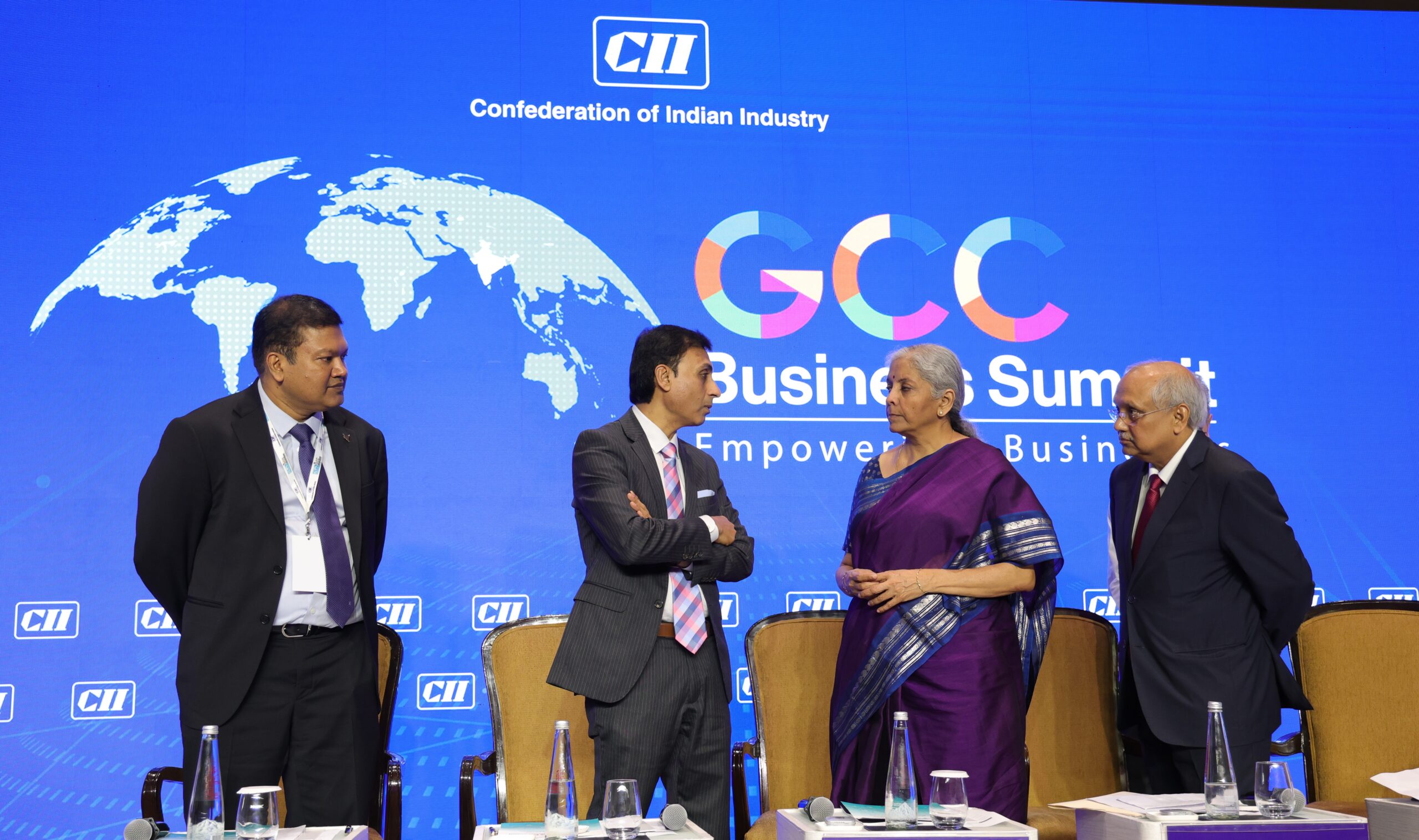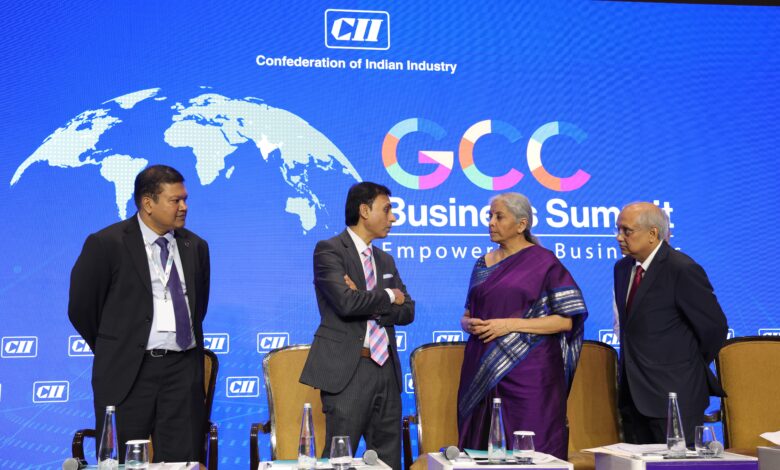
The Confederation of India Industry (CII) hosted its inaugural national-level GCC Business Summit in New Delhi on July 14th, marking a significant milestone for a sector that has become a strategic growth engine for the country’s economy. The summit brought together industry leaders, policymakers, and think tanks to reflect on the GCC journey so far and chart the road ahead.
From emerging technologies to policy reforms, and tier 2 city expansion to global leadership, here are key highlights from the addresses of influential voices at the summit:
Nirmala Sitharaman, Minister of Finance and Corporate Affairs, GoI
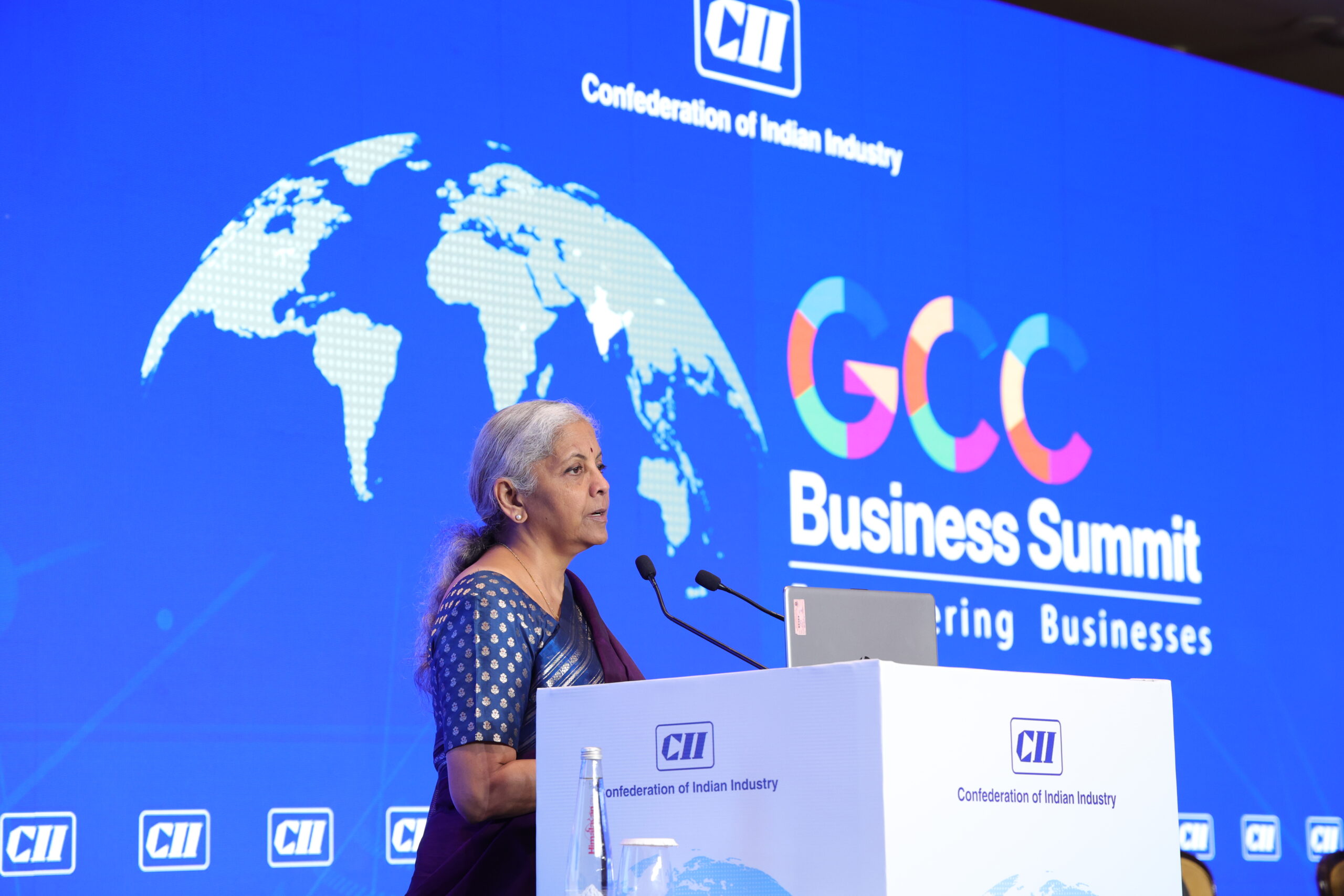
In her keynote address, Nirmala Sitharaman traced the sector’s trajectory: from its inception in 1985 (with Texas Instruments in Bengaluru) to crossing the 1,000‑centre milestone only in 2015, and then adding roughly one new GCC every week in 2024. Today, India hosts 32 percent of the world’s GCC workforce, including an impressive 35 percent of women in various roles.
The sector contributes $68 billion in value, on track to more than $150-200 billion within five years.
The FM also emphasized the industry has grown at a CAGR of 11 percent over the last five years, underscoring its sustained momentum. The Minister called for an institutionalized governance mechanism to ensure that the same energy prevails across all levels of government, and urged GCCs to deepen ties with startups while expanding into tier‑2 and tier‑3 cities—citing GIFT City as a prime example of what’s possible when infrastructure, policy, and intent align. Her message was clear: the future of India’s GCC story must be both inclusive and inexhaustible.
Rajiv Memani, Chairman and CEO – EY India and President, CII
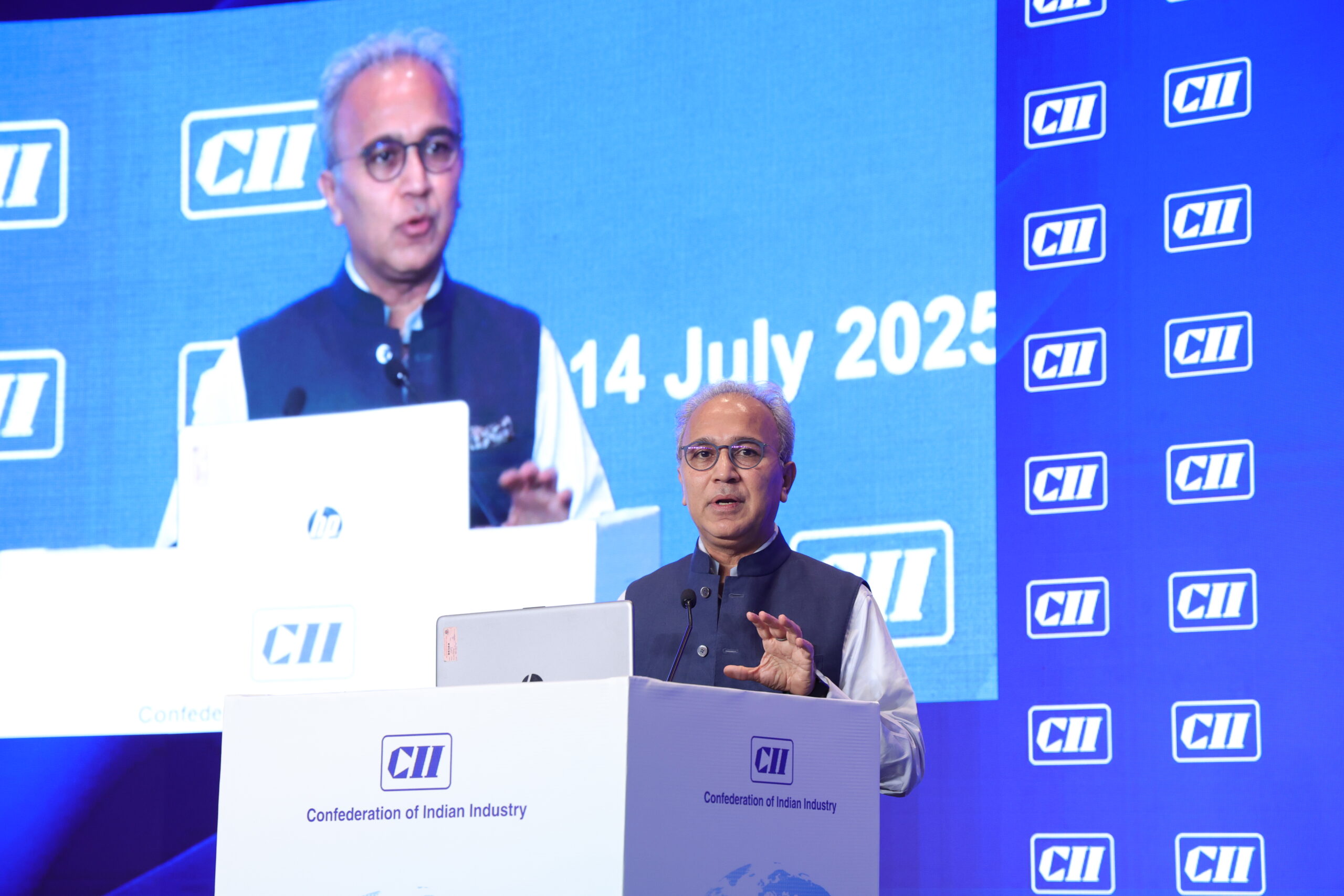
Rajiv spoke about the macro‑economic heft GCCs already command: 8–9 percent of India’s total exports. He said GCCs are a magnet for returning Indian leaders and a mandatory stop on every global CEO’s annual pilgrimage—proof that “Brand India” is now inseparable from global strategy.
But Rajiv was candid about headwinds: lingering tax ambiguities and ease‑of‑doing‑business hurdles, just as GenAI, 6G, and other frontier technologies accelerate. By addressing the challenges, India’s GCCs can cement their role as integral, high-value nodes in multinational value chains.
Chandrajit Banerjee – Director General, CII
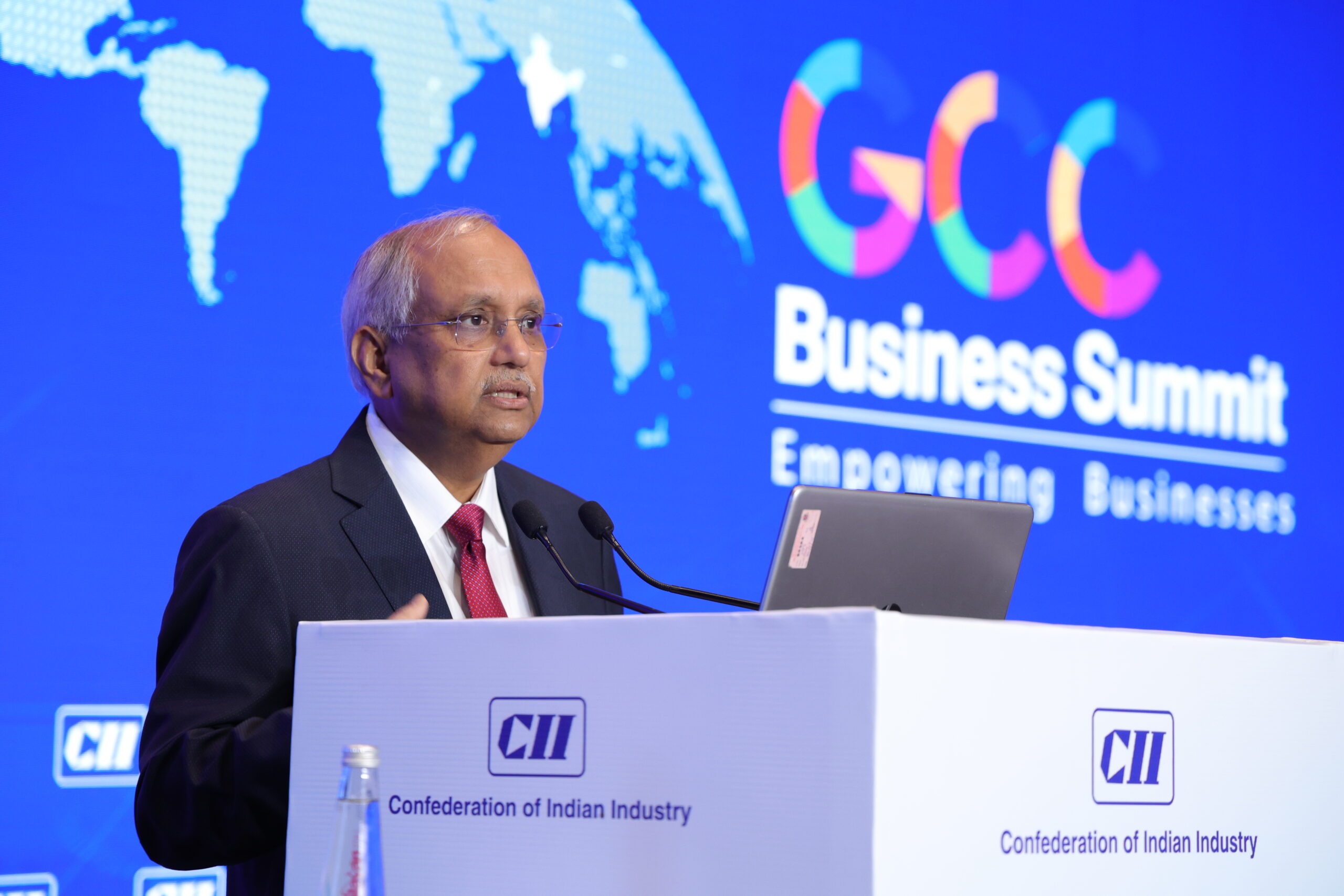
At the national level, a government- and industry-backed talent development platform could be a game changer for India’s GCC ecosystem, enabling a future-ready workforce across metros and emerging hubs. A national policy framework can further institutionalize formal mechanisms for deeper collaboration between GCCs and startups, unlocking innovation at scale. To steer this momentum, we’ve also been actively deliberating the creation of a National GCC Council—with participation from senior leadership, industry stakeholders, and state governments—to ensure cohesive governance and sustained growth.
Gunjan Samthani, Co-Chairman, Goldman Sachs (India) and Chair, CII Task Force on GCCs
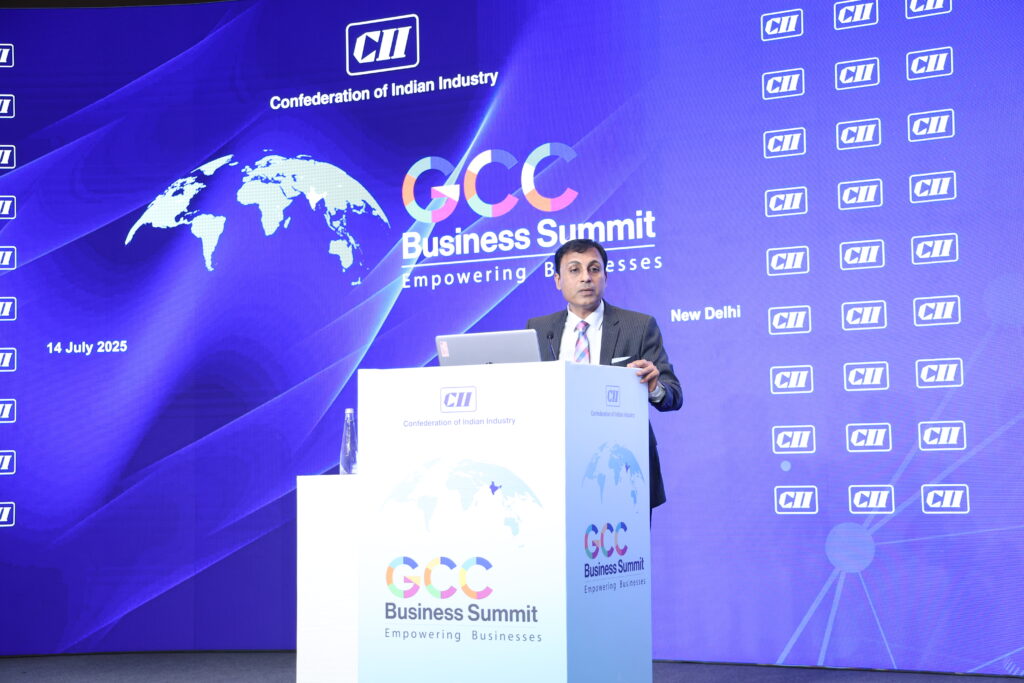
Gunjan opened the summit with a reminder of just how far India’s GCC story has come—and how much further it can go. Four decades since the first centres were set up, the sector employs the world’s largest pool of STEM graduates. Gunjan’s gaze was gung-ho on what’s next: the possibilities in AI, cybersecurity, IoT, quantum computing, and blockchain. These technologies, he said, are not merely add-ons but the new imperative for national-level impact, positioning India to lead the next wave of global digital transformation.
Romal Shetty, CEO of Deloitte South Asia and Co-Chair, CII Task Force on GCCs
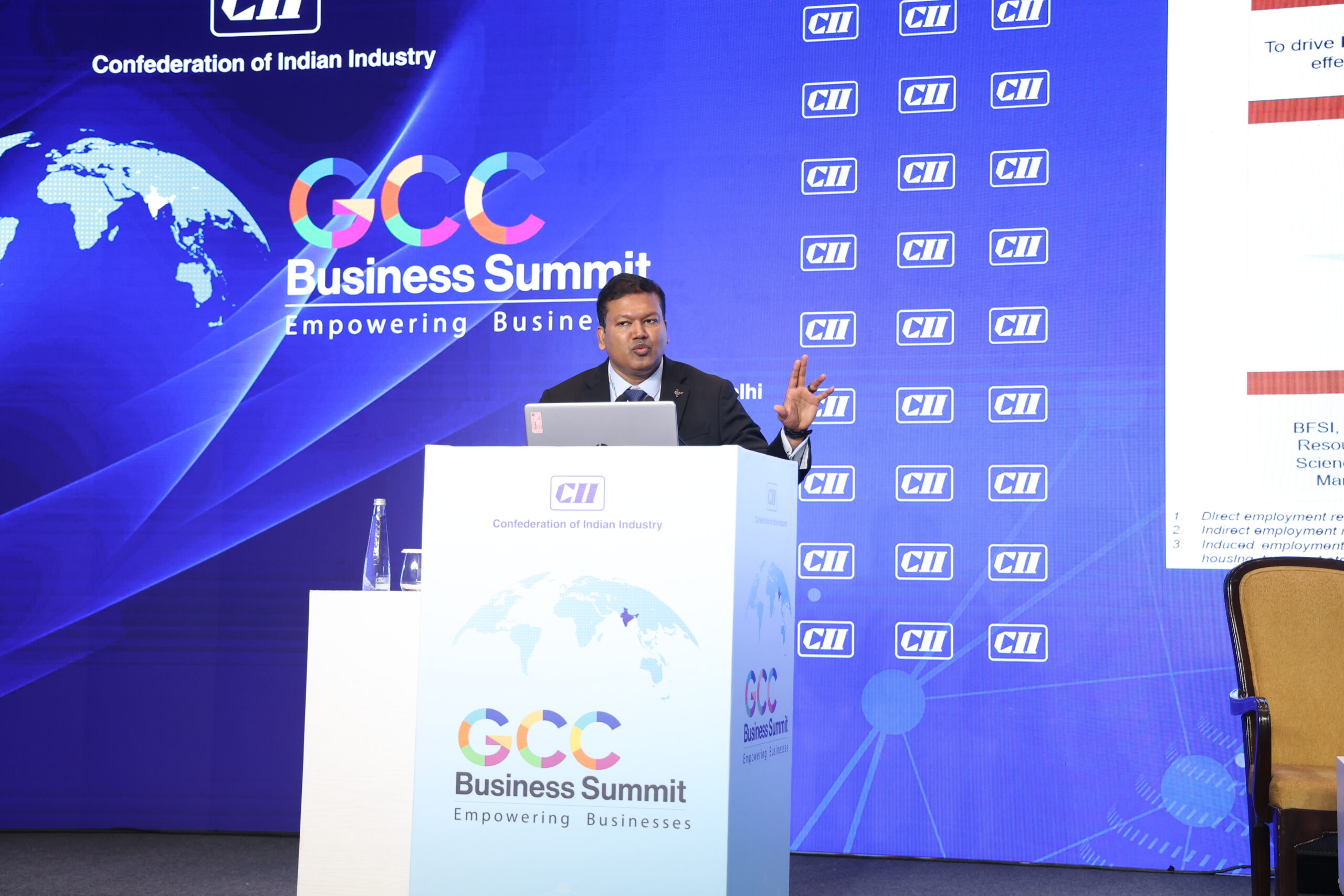
Picking up the baton, Romal spotlighted the structural enablers India must put in place to unlock that promise. Senior leadership roles within GCCs will surge, he predicted, if India can build a true “digital‑first” infrastructure and a talent‑acceleration hub that spans metro and tier‑2 cities alike. A ‘national skills passport’ and a single‑window clearance system were among his many recommendations. With investment‑facilitation cells and a proposed National GCC Council, Romal envisioned India becoming the world’s preferred “front office” for innovation and CX.


